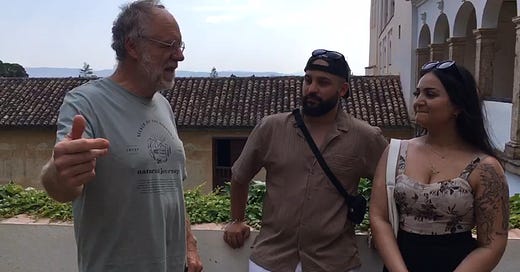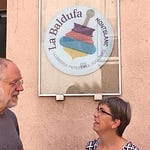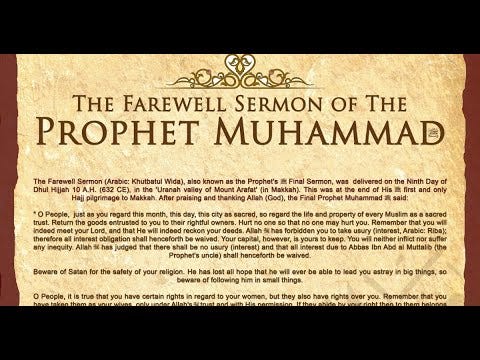The Alhambra in Granada, Spain—the last Muslim stronghold in al-Andalus, which fell to Ferdinand and Isabella in 1492—symbolizes both the lost glories of Islamic Spain, and the ethnic cleansing that gave birth to modern ethno-nationalist Europe. Within a few decades of the fall of Granada, Spanish Muslims and Jews were force-converted to Christianity. A little over a century later, their nominally Christian descendants, the Moriscos, were expelled from the Iberian peninsula, with 300,000 made refugees while tens of thousands perished.
Today’s convivencia interview features Leon, who was affected by a more recent ethnic cleansing: The persecutions, expulsions, forced conversions, and killings of the Assyrian Christians of Bartella, Iraq by Daesh (ISIS) circa 2014-2016. (It is worth noting that Daesh/ISIS is a fringe movement with virtually no support in the Islamic world, as shown by Pew Research surveys among other polls. ISIS leaders, including some of Syria’s new rulers, are widely viewed as mercenaries of the Zionists and imperialists.)
Interview with Leon and Azalea
We're here with Leon and Azalea at the Alhambra in Granada talking about convivencia. And the question is, do you think that convivencia is possible in today's world?
Leon: I do think it's possible. I do think people need to be careful these days because…the issue with social media is it sort of promotes like the more extreme beliefs on any end of the spectrum. In reality, what we need to do is get to know people in real life and talk to people in real life. And I think when you do that, you get to find out everyone's the same. We all have similar values. We all care about family, friends. Food brings people together. We're all humans at the end of the day. It's important to realize that that stuff is popular online, but it doesn't reflect reality. And I think it's important for people to remember that.
And how about in Europe and North America in particular? Trump is famous for stirring up tension, and there are far-right movements in Europe. Will Europe and North America recover and rediscover living together?
Leon: We're from Canada, and one of the things I'm kind of grateful to be in Canada right now…it's a shame that Trump's got back in office, but one thing that it has done is it's really unified the country. And you see people really feel more inclined to stand together. And I think there's a lot of people in Europe who are seeing similar things.
In Canada, it's a lot more multicultural. You'll see people of all different backgrounds and faiths hanging out and getting food together, visiting the mall and all these sorts of things. They promote each other's cultures and holidays.
Azalea: Very much so, yeah. Everyone knows you can greet each other in each other's languages. That's a big one. Some of the street names are in different scripts. Some will be in Punjabi, some will be in Mandarin. Some are in indigenous languages.
And your backgrounds are interesting. Remind us…
Leon: Yeah, so I'm from Iraq. I'm from a northern part of Iraq called Bartella. We're a small Christian community there.
Azalea: I was born in Canada, but my family is from Punjab in India.
Excellent. Okay, and then last question. Is convivencia going to be possible someday in Palestine?
I think that's quite a challenge because again there are a lot of outside groups that sort of have a vested interest in, let's say, seeing conflict in that area. But you talk to people there—I have some friends who are from Palestine and I have some friends who are Israeli—and what I hear, a lot of people there, they get along. They don't want to have conflict. And I think when we start allowing those people's voices to be heard, I think that's when we start making steps in the right direction.













Share this post